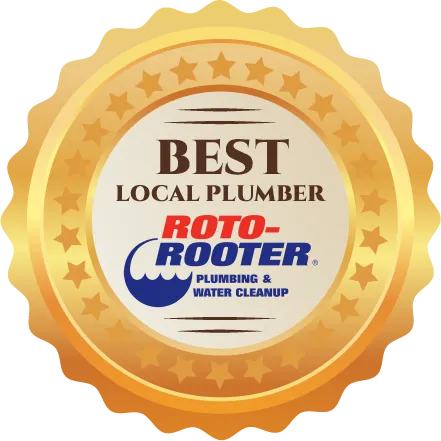DIY Vs Professional: Unclogging Kitchen Drains in St. George
When your kitchen drain clogs in St. George, you’re faced with a choice: tackle it yourself or call a professional. DIY methods are tempting with their low cost and quick fixes, but are they sufficient for persistent issues? In St. George, the challenge is compounded by the area’s notoriously hard water, which can lead to mineral buildup in pipes, escalating the likelihood of clogs. Additionally, the region’s unique climate can cause materials to expand and contract, potentially worsening drainage problems. So, when should you make that call to a plumber, and is it worth the expense? Let’s explore your options.
Understanding the Causes of Clogged Kitchen Drains
When it comes to clogged kitchen drains in coastal regions, understanding the root causes can save you from future headaches.
You mightn’t realize it, but everyday items contribute to this nuisance. In these areas, sand and small pebbles brought in from the beach can find their way into drains, exacerbating blockages. Grease is another major culprit; it solidifies in pipes, leading to blockages.
In regions with hard water, mineral deposits can build up, further narrowing the pipes. Food scraps, especially starchy or fibrous ones like pasta and potato peels, can also create clogs when they accumulate.
Soap scum, which forms from fats in soaps, combines with other debris to narrow your pipes over time. Additionally, coffee grounds might seem harmless, but they clump together and cause problems.
Small objects accidentally dropped down the drain can lead to unexpected blockages as well. By being mindful of what goes down your drain, you’ll prevent many common issues specific to your area.
Common DIY Methods for Unclogging Drains
Understanding what causes clogged kitchen drains is only half the battle; now, let’s explore practical DIY methods to tackle these issues, especially in areas with hard water.
In regions where mineral buildup is common, clogs can be more stubborn. Start with a simple plunger. Ensure there’s enough water in the sink to cover the plunger’s cup, then push and pull vigorously to dislodge the clog.
If the plunger doesn’t work, try a mixture of baking soda and vinegar, which is particularly effective for breaking down mineral deposits. Pour half a cup of baking soda followed by half a cup of vinegar down the drain. Wait for the fizzing to subside, then flush with hot water, which is crucial in areas with colder climates where grease solidification can be an issue.
Another option is using a drain snake. Insert it into the drain, twist, and pull out any trapped debris.
These methods are effective, affordable, and easy to execute, making them ideal for homes in areas prone to frequent plumbing challenges.
Evaluating the Cost of DIY Drain Solutions
Evaluating the cost of DIY drain solutions involves considering a few key factors, especially those specific to your local area.
For instance, in regions with hard water, mineral deposits can cause frequent clogs, necessitating more frequent maintenance.
First, think about the supplies you’ll need, like a plunger, baking soda, vinegar, or a drain snake. These items are generally affordable, and you might already have some at home.
Next, assess the time you’ll spend tackling the clog. If you’re not experienced, DIY methods might take longer, potentially leading to frustration.
Also, consider potential mistakes. A simple error could escalate the problem, increasing costs if you eventually need professional help.
In areas with older plumbing systems, mistakes can be more costly, so factor that into your decision.
Finally, think about frequency. If your drains clog often due to local issues like tree roots infiltrating sewer lines or seasonal leaf fall, investing in professional services might be more economical long-term.
Weigh these factors carefully to decide if DIY solutions are truly cost-effective for your situation.
Effectiveness of Home Remedies for Drain Cleaning
In many regions, people turn to home remedies for unclogging drains due to their cost-effectiveness and convenience, especially when the ingredients are readily available in most households.
In areas with limestone-rich water, for example, mineral build-up can be a common issue, making baking soda and vinegar an appealing choice. This combination creates a fizzing reaction that can help break down minor clogs caused by mineral deposits.
In coastal regions, grease build-up is often a concern due to the high humidity levels. Pouring boiling water down the drain can effectively dissolve greasy residue.
In areas with hard water, salt and baking soda can combine to create a potent cleaning agent that tackles stubborn grime from mineral deposits.
However, while these methods may work well for minor blockages, they aren’t always a comprehensive solution.
In regions with older plumbing systems, drains may become clogged more frequently, requiring more persistent efforts. Be prepared to try more than one method or repeat treatments for optimal results, especially in areas prone to persistent plumbing challenges.
When to Call a Professional Plumber
Even though home remedies can tackle minor clogs, there comes a time when you should call a professional plumber. For residents in older neighborhoods, particularly those with historical homes, persistent clogs might be a sign of aging infrastructure such as corroded pipes or outdated plumbing systems.
In many coastal areas, the high moisture levels can exacerbate plumbing issues, leading to rust or mineral buildup that simple DIY methods can’t fix. If you’ve tried plunging, baking soda, and vinegar but still face a stubborn blockage, it’s time for expert help.
Tree-lined streets are beautiful, but tree root intrusion is a common problem in these areas, potentially causing severe damage to underground pipes. This requires specialized tools and expertise to resolve, which a professional plumber can provide.
Water backing up in multiple drains or unpleasant odors could also signal significant plumbing problems, especially in regions prone to flooding where groundwater might affect sewage systems. Avoid the temptation to overuse harsh chemicals, as they can damage pipes and pose health risks.
Don’t wait for a small issue to escalate into a costly repair. A professional plumber guarantees the job’s done right, saving you time and the hassle of recurring problems.
Costs Associated With Hiring a Professional
Hiring a professional plumber in St. George can involve various costs, but understanding these expenses can guide you in making well-informed decisions. In this area, you might expect to pay between $100 to $300 for basic unclogging services. The exact cost often hinges on factors such as the complexity of the clog and the plumber’s level of experience.
Unique to St. George, the region’s hard water can exacerbate plumbing issues, potentially leading to more frequent clogs and the need for professional intervention. Emergency services or work scheduled during non-business hours typically incur higher fees. Additionally, some plumbers in St. George might charge a flat rate, while others bill by the hour, impacting your total cost.
Given the area’s hot and dry climate, plumbing issues related to water conservation systems can also arise, adding another layer of complexity to potential service needs. It’s crucial to discuss pricing upfront to avoid surprises.
Although hiring a professional may seem costly, it can ultimately save you time and prevent further damage, which could lead to even higher repair costs down the line.
Comparing the Convenience of DIY Versus Hiring a Pro
In regions like Seattle, known for its frequent rain, clogged kitchen drains can often be exacerbated by excess water and debris.
While hiring a professional plumber in such areas can incur costs, many homeowners wonder if tackling a clogged drain on their own is a better option.
DIY drain cleaning offers the convenience of immediate action, especially in a city where weather conditions can be unpredictable. You won’t need to wait for a plumber’s schedule, giving you the freedom to address the issue at any time. Plus, you can save on labor fees by using tools you might already have at home.
However, Seattle’s unique plumbing challenges, such as older infrastructure and tree root intrusion, can make DIY methods time-consuming and mightn’t guarantee a thorough fix.
On the other hand, hiring a pro means you’ll benefit from their expertise and specialized equipment, often resolving the issue faster and more effectively, which is crucial in a city where plumbing problems can escalate quickly due to the climate.
Ultimately, the choice depends on your confidence in handling the job and your time constraints.
Safety Considerations for DIY Drain Cleaning
When addressing a clogged drain on your own, it’s crucial to prioritize safety to prevent any unwanted incidents. In regions with older infrastructure, such as New England, be cautious of outdated plumbing that may be more susceptible to damage.
Ensure you have the appropriate tools and protective gear. Wear rubber gloves to shield your hands from harsh chemicals and sharp debris. In areas with hard water, like the Midwest, limescale buildup can complicate clogs, so avoid mixing drain cleaners, as this can create hazardous fumes.
If using a plunger, ensure it’s the correct size for your drain to prevent splashback. Always read and adhere to the instructions on any commercial drain cleaner you utilize.
Keep children and pets away from the work area to avoid accidents. When using a drain snake, handle it gently to prevent pipe damage, particularly in older homes found in historic districts.
Ensure proper ventilation in the area to safely disperse any fumes, especially in basements common in the Northeast. Stay informed and exercise caution.
Making the Right Choice for Your Kitchen Drain Needs
Selecting the appropriate solution for your kitchen drain issues requires careful consideration of the clog’s nature and severity, especially given the unique challenges faced in areas with hard water, such as those found in many parts of the Midwest. Hard water can lead to mineral buildup, which may contribute to more frequent clogs.
First, evaluate whether the blockage is minor or persistent. If you notice slow drainage or minor clogs, you might address it yourself with a plunger or a homemade vinegar and baking soda solution, which can help break down some mineral deposits.
However, if the clog is stubborn, recurring, or causing water to back up, it’s best to call a professional. They’ve the tools and expertise to handle tough blockages safely and efficiently, and are often familiar with the specific issues caused by hard water in your area.
Consider your comfort and experience level. DIY methods can save money but may take time, and improper techniques could lead to damage, particularly in older homes common in regions with long histories like New England.
In contrast, professionals offer peace of mind, ensuring the job’s done right without the risk of further issues.
Conclusion
In St. George, while DIY methods like plunging or using baking soda and vinegar can be effective for minor clogs, they might not always solve the problem due to the region’s unique plumbing challenges. The mineral-rich water in this area can lead to persistent issues, often indicating deeper plumbing concerns. These minerals can build up over time, exacerbating clogs and potentially damaging your pipes. Hiring a professional plumber familiar with St. George’s specific water conditions guarantees a thorough job, safeguarding your plumbing system against long-term damage. It’s important to weigh the costs, convenience, and safety of each approach, and choose what’s best for your home’s plumbing health in the unique context of this region.
Tags





